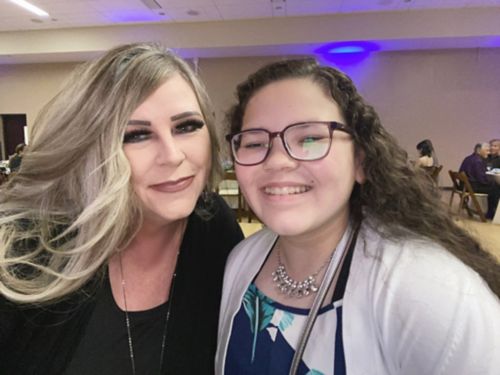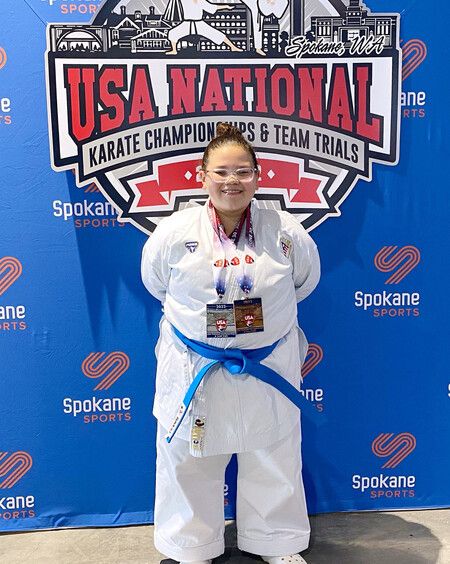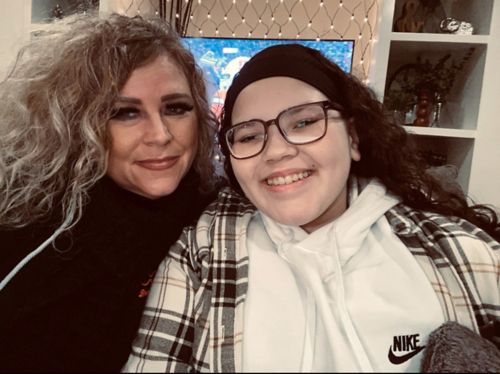From Exhaustion to Empowerment: A Sleep Success Story

Cheila remembers many nights when Zoë struggled to sleep.
I remember many nights when I woke up to the sound of snores from my daughter, Zoë, drifting through the house. The rhythmic up and down of an uneasy sleep. Then silence when she stopped breathing for a moment. Suddenly, she was awake, making her way to the bathroom.
This was not just a phase or an occasional restless night. It was our routine—one that left Zoë sleeping through her alarm each morning. She was exhausted and unable to get through the day without a nap, sometimes several.
It broke my heart.

A sleep specialist gave Zoë tips to help her improve her sleep routine, which also helped her improve her quality of life.
Seeking help
Zoë has a benign brain tumor in the craniopharyngeal duct of her brain. She also has narcolepsy and borderline sleep apnea. During a routine visit with her regular doctor, Zoë mentioned how tired she was. Her doctor suggested that she see a sleep specialist.
Walking into the specialist’s office, I was unsure what to expect. But the doctor was very kind and listened to Zoë.
We already kept to a good routine, and it was nice to hear how important that is. It was also reassuring to hear we were on the right track.
I really liked the doctor’s style. She let Zoë talk, and all her questions were intended to help her figure out how she could help. She asked about what was going on with Zoë’s life, how the tumor was affecting her sleep, and how it might be affecting her days.
Making changes
The sleep specialist gave Zoë great advice. Some of Zoë’s medicines can make it hard for her to fall asleep, so she suggested that Zoë take those earlier in the day.
To reduce the number of trips Zoë took to the bathroom each night, the specialist suggested that Zoë stop drinking fluids 1 hour before bed. Just before bedtime, Zoë goes to the bathroom and takes her last medicine of the day.
The doctor also wanted Zoë to go to bed at the same time every night and then get up at the same time every morning.
Finally, Zoë committed to putting her phone away at least 1 hour before bed. To distract herself, she gets ready for the next day, picking out clothes and packing her lunch.

Zoë’s commitment to keeping a good sleep routine has helped her in many different aspects, including karate.
The turning point
We put the plan into action and added a few personal touches that we thought would help us both. We each have a sound machine that plays white noise and ocean waves. And we pray.
It took time, but slowly things began to improve. It felt like a weight was lifted from our shoulders. Zoë was beginning to get good sleep.
The transformation
As the weeks went by, the changes were undeniable. Small moments began to feel like a big deal. She was suddenly getting up with her alarm, not asking me if she could sleep for 5 more minutes. Mornings became peaceful instead of rushed and chaotic.
Today, she tackles her homework with focus instead of frustration. She’s a straight-A high school student who also has a brown belt, second stripe, in karate.

Cheila is so happy to see how Zoë ‘s life has improved by committing to a good bedtime routine.
Helping others
Helping my daughter regain her rest was incredibly rewarding. It reminded me of how important it is to listen to your child, to get help when it is needed, and to remain patient through the process.
If you are a caregiver facing similar struggles, do not hesitate to reach out for support—whether to a sleep specialist, a therapist, or to other caregivers. Sleep is not a luxury. It is a necessity. And, with help, things really can get better.





